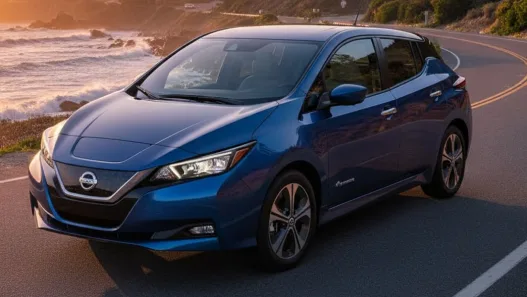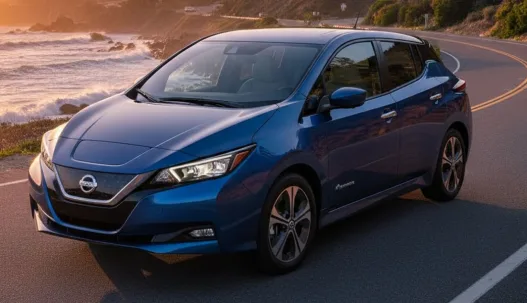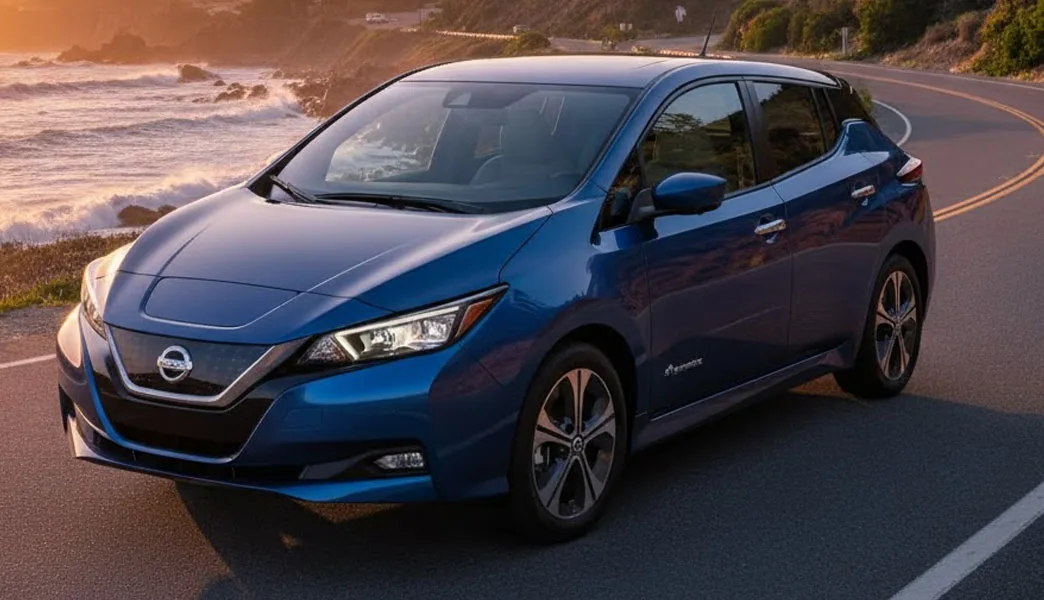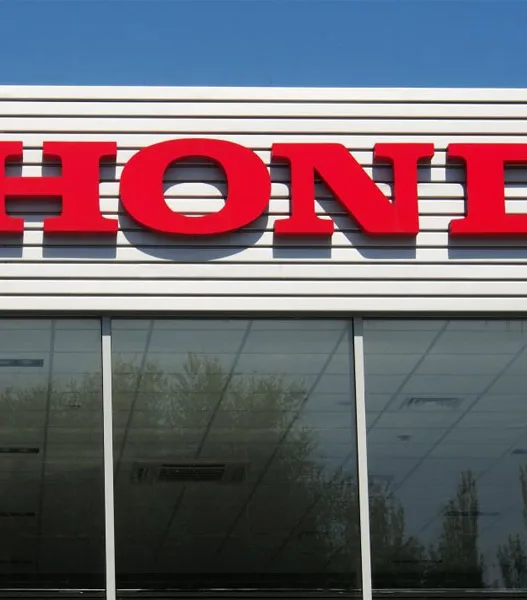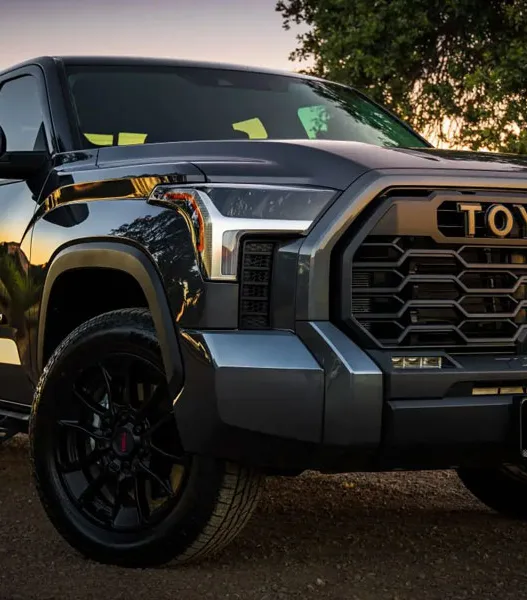According to the National Highway Traffic Safety Administration (NHTSA), Nissan is recalling more than 19,000 2021-2022 LEAF SUVs because the lithium-ion battery may overheat while rapidly charging, increasing the risk of a fire.
The potential reason behind the issue is that the batteries may have excessive lithium deposits within their cells, which increases electrical resistance and leads to rapid heating.
Nissan Motor Corporation urges owners not to use Level 3 quick charging until the remedy is completed. Dive deep into the Nissan battery fire risk recall report in the article below.
How Many Nissan Vehicles Are Affected in the Recall?
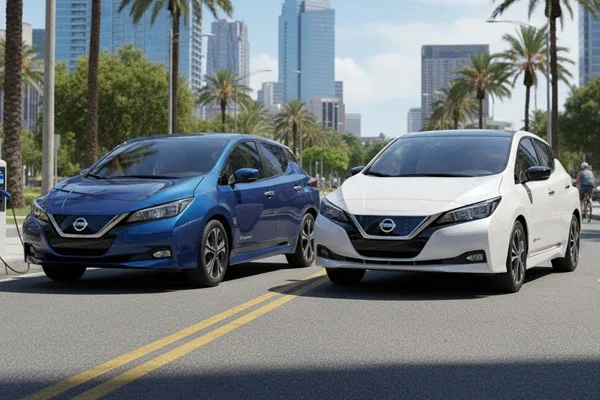
According to the recall report submitted on October 1, 2025, around 19,077 Nissan LEAF U.S. electric vehicles are being recalled. The recall includes certain 2021-2022 LEAF SUVs equipped with a Level 3 quick charging port, manufactured from November 3, 2020, to May 23, 2022, at the Nissan Smyrna Plant.
What Caused the Nissan Battery Fire Risk Recall?
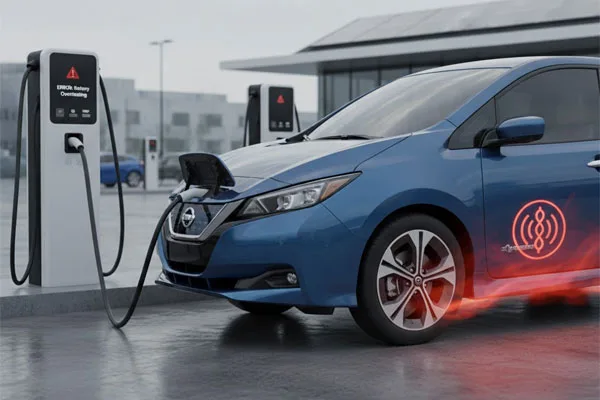
The lithium-ion batteries in the affected vehicles may overheat during level 3 charging, causing the recall, according to the recall notice.
The authorities said these batteries contain excessive lithium deposits within their cells, increasing electrical resistance and leading to rapid heating.
How Does Lithium Deposition Increase Electrical Resistance?
The lithium deposited naturally reacts with the electrolyte, causing the solid electrolyte interphase layer on the anode to thicken uncontrollably. Excessive lithium deposition increases the ionic resistance, hindering the flow of lithium ions.
When the lithium deposits grow into dendrites, they can clog the porous structure of the anode and separator. This blockage inhibits the movement of lithium ions, ultimately increasing the resistance.
In a worst-case scenario, the growing lithium dendrites can even puncture the separator, creating an internal short circuit. Sometimes, the expansion and contraction of electrodes during cycling can cause particles to crack and lose electrical contact with the current collector.
Excessive lithium deposition can cause this delamination, reducing the amount of active material and increasing resistance.
Potential Reasons Behind Excessive Lithium Deposition or Lithium Plating
Here are some potential reasons behind the excessive lithium deposition or lithium plating.
1. Manufacturing Defects
One of the most common reasons is a manufacturing defect. There is a possibility of uneven coating on the anode or defects in the separator, causing non-uniform current flow. It results in creating localized spots where lithium plating is more likely to occur.
2. Fast Charging
If the battery is charged too quickly, lithium ions arrive at the anode faster than they can be absorbed into the graphite layers. Then the un-intercalated lithium accumulates on the surface of the anode as metallic lithium plating.
3. Charging at Low Temperature
When charged at low temperature, the rate of lithium-ion diffusion into the anode material becomes slower. However, the anode’s ability to intercalate the ions can also be overwhelmed at moderate temperatures, leading to excessive lithium deposition.
4. Overcharging
Charging a battery beyond its maximum specified voltage forces an excessive current into the cell, which leads to the formation of metallic lithium deposits.
5. High State-Of-Charge
When the battery reached its high state-of-charge, the anode became saturated with lithium ions, slowing down the intercalation process. As a result, it will make it easier for new lithium ions to plate on the anode surface.
Warning Signs of a Lithium Battery Overheating
According to the recall report, the automaker reported no warning signs of lithium batteries in the affected Nissan LEAF SUVs overheating and catching fire. However, several signs are out there that may warn you about the situation.
- When you touch the battery, it’ll feel abnormally hot.
- The battery may appear bloated or puff up.
- You may hear cracking, hissing, or popping noises. It is a clear sign of pressure building inside the battery.
- A leaking electrolyte or venting that will give you a sharp, acrid, sweet, or metallic smell.
- Sometimes, you may also notice smoke or fluid leaking from the battery, potentially leading to a fire.
If you notice any of these signs, you should immediately stop using the battery and evacuate the vehicle. Make sure to avoid touching the damaged battery, as it could be hazardous.
It could explode or cause severe burns on your hand. If you notice any smoke or flames, you should contact emergency services.
How Dangerous an Overheating Lithium Battery Could Be?
An overheating lithium battery could be hazardous. It can lead to a rapid and violent chemical reaction that releases toxic fumes and flammable gases, potentially leading to a fire or explosion.
How Will Nissan Fix the Issue?
To fix the issue, Nissan authorized dealers will update the battery software, free of charge. The automaker is preparing the remedy software that will prevent progression to a thermal incident.
Once the remedy software is ready for deployment, owners of all affected vehicles will be notified with an Invitation to Repair Owner Letter. Nissan has also urged owners not to use the Level 3 quick charging until the remedy is completed.
Owners will receive interim letters about the safety risk, which is expected to be mailed on October 24, 2025. A second letter will also be sent once the remedy becomes available.
Wrapping Up
As Nissan is working to resolve the battery overheating issue, owners are urged not to use the Level 3 quick charging until repairs are complete. While the recall may raise concerns, it also highlights the brand’s proactive approach to transparency in addressing potential risks.
Owners may contact Nissan’s Customer Service at 1-800-867-7669. If you own a Nissan LEAF vehicle, you can check whether your car is involved in the recall on the NHTSA database.
Vehicle Identification Numbers involved in this recall will be searchable on the NHTSA official website beginning October 4, 2025.
Sources: NHTSA, New York Post
Frequently Asked Questions
1. Why is Nissan Recalling the 2021–2022 LEAF Models?
Nissan is recalling 2021–2022 LEAF SUVs because the lithium-ion batteries may overheat during Level 3 quick charging. This overheating risk increases the risk of a fire or explosion.
2. How Many Nissan Vehicles are Affected by this Recall?
According to the National Highway Traffic Safety Administration (NHTSA), around 19,077 Nissan LEAF SUVs built between November 3, 2020, and May 23, 2022, are affected by the recall.
3. What Causes the Battery to Overheat?
The issue is linked to excessive lithium deposits within the battery cells. These deposits increase electrical resistance, leading to rapid heating during fast charging.
4. What are the Warning Signs of a Lithium Battery Overheating?
Several warning signs may include:
- The battery is feeling unusually hot
- Bulging or swelling of the battery pack
- Cracking, popping, or hissing noises
- A strong metallic or sweet odor from venting gases
- Smoke, fluid leakage, or visible flames
5. Is it Safe to Continue Using Affected Nissan LEAF?
Yes, but do not use Level 3 quick charging until the issue is resolved. You can safely use Level 1 or Level 2 charging methods and continue driving as normal.
6. What is Nissan’s Solution to Fix this Issue?
Nissan will update the battery software free of charge. The update is designed to prevent progression to a thermal incident.
7. How Can I Check If My Nissan LEAF is Part of this Recall?
You can check your vehicle’s recall status by visiting the official NHTSA recall website by entering your Vehicle Identification Number (VIN).
8. What Should Owners Do Until the Recall Repair is Completed?
Nissan advised owners to avoid using Level 3 quick charging stations. They can charge only using Level 1 or Level 2 chargers.
9. Has Nissan Reported Any Fires or Injuries Related to this Issue?
According to the recall notice, Nissan has not reported any fires, injuries, or accidents connected to this battery overheating issue.




